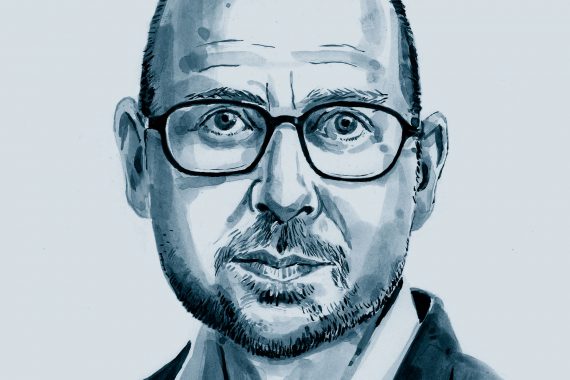People say I always write the same articles, and they’re probably right. So here is an old chestnut, on antidepressants. My view is simple. These medications are overprescribed and prescribed for too long.
Now obviously, why should anyone listen to a chav like me, rather than some illustrious Oxbridge professor of psychiatry, asserting that depression is underdiagnosed and undertreated? And when the psychiatric tanks are about to roll into the quagmire of modern child mental health in a campaign to improve the wellbeing of our children and defeat depression.[1] Surely this a good thing? What sort of idiot could object?
Well I do. The ‘Defeat Depression’ campaign in adults in the 1990s was an unmitigated disaster for society. It led to vast numbers of prescriptions, lifelong treatment and side effects. Antidepressant prescribing rates have since doubled in a decade, to an eye watering 61 million prescriptions in 2015.
This is despite much evidence suggesting antidepressants are completely ineffective.[2,3] Most of the observed ‘benefit’ is merely due to an exaggerated placebo response and even by the most optimistic calculations 85% of patients get no benefit from medication at all.[4,5] And when patients try to and stop, half experience withdrawal with agitation, insomnia and mood swings, which many construe as a return of their low mood.[6] Yet we know that non-drug talking therapy alternatives work better than antidepressants.[7]
The problem is the psychiatric community has used antidepressant medications to validate the ‘chemical imbalance’ model and endorse widespread polypharmacy in other mental health conditions. But this model has limited science to support it, especially in depression.[8] And the definition of depression is equally unscientific and arbitrary. Two weeks of symptoms? Why not eight weeks? Who decided this cut off?
Most people in primary care have reactive depression or adjustment disorders. But challenging this prevailing wisdom of course means I am stigmatising and dismissing mental illness and should be shouted down. But we all suffer mental illness at times, be it anxiety or depression, I know that I certainly have. The issue is how we manage mental illness.
Clearly psychological pain, just like physical pain, has a purpose – it is an evolutionary response. Psychological pain is the catalyst of change, acceptance and moving on. Talking it through, addressing social stresses, changing lifestyle and perhaps ending unhappy relationships is the solution. Antidepressants are not the answer for the vast, vast majority of people. We should aim to normalise, not medicalise.
Of course this will be dismissed as simplistic drivel, as life ‘is more complex than this’. But in my view it isn’t, it really is as simple as that. If we want to help sort out adult mental health services, then make access to counselling a top priority. A simple solution would be to cut the standard six session approach to three. Bingo – twice the amount of access! Simple things often do work.
Lastly, good luck sorting out mental health issues in children. As a parent of four, you realise that broad themes in society are usually at the root, with confused and unrealistic expectations messing with their minds. Psychiatry, contrary to popular mythology, has no magic insight or silver bullet to offer. Psychiatry will make it worse with a binary unscientific biological model, with a mantra of medicate, medicate and medicate. It will disrupt and deny the children the opportunity to work things through themselves.
Please can we have renewal of psychiatric and medical thinking, for I get tired of writing the same articles.
Dr Des Spence is a GP in Maryhill, Glasgow, and a tutor at the University of Glasgow
References
1. Barej A. NHS ‘struggling to improve mental health services for young people’. Public Finance; 22 Mar 17
2. Fournier JC et al. Antidepressant drug effects and depression severity: a patient-level meta-analysis. JAMA 2010; 303: 47-53
3. Kirsch I et al. Initial severity and antidepressant benefits: a meta-analysis of data submitted to the Food and Drug Administration. PLoS Med 2008; 5:e45
4. Shedden Mora M et al. Lessons learned from placebo groups in antidepressant trials. Philos Trans R Soc Lond B Biol Sci 2011; 366(1572): 1879–1888
5. Arroll B et al. Antidepressants versus placebo for depression in primary care. Cochrane Database Syst Rev 2009; 3: CD007954
6. Haddad PM, Anderson IM. Recognising and managing antidepressant discontinuation symptoms. Adv Psychiatr Treat 2007; 13: 447–57
7. British Association of Chartered Psychotherapists. Effectiveness of counselling.
8. Lacasse JR, Leo J. Serotonin and depression: a disconnect between the advertisements and the scientific literature. PLoS Med 2005; 12: e392
Pulse October survey
Take our July 2025 survey to potentially win £1.000 worth of tokens













